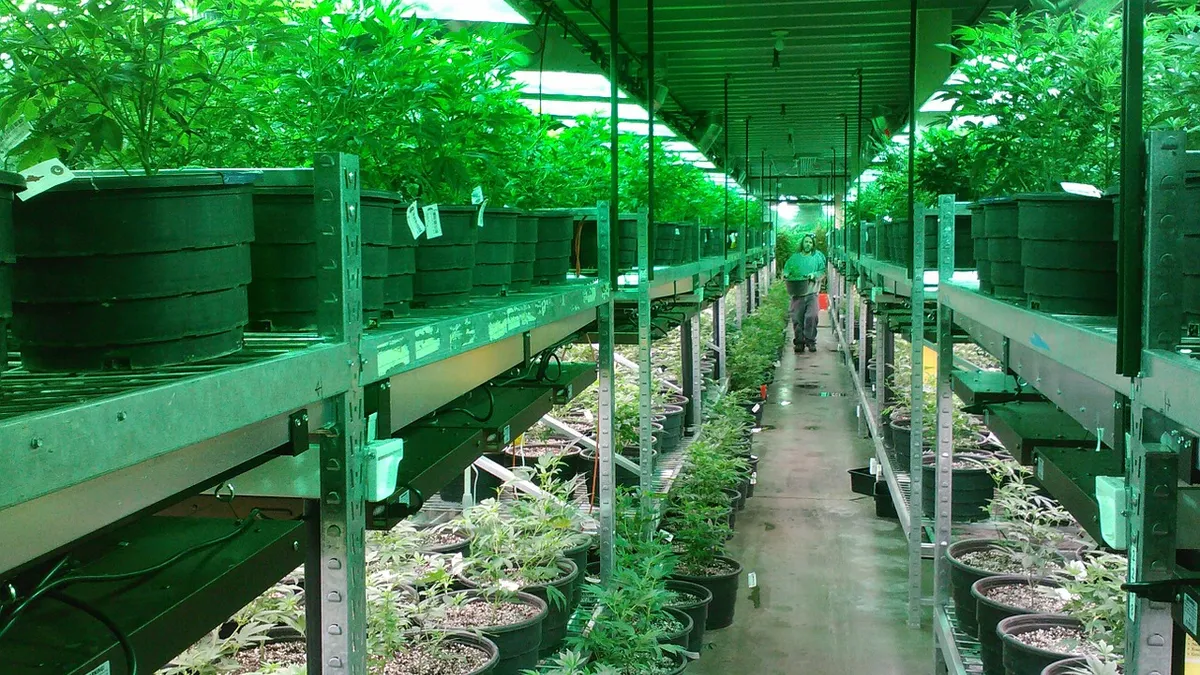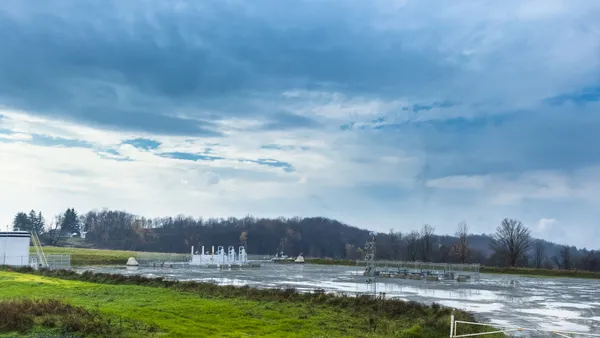Dive Brief:
- The Massachusetts Cannabis Control Commission is in the process of developing standards and regulations for marijuana grow operations, and a state agency has recommended specific energy efficiency standards be put in place.
- Massachusett's Executive Office of Energy and Environmental Affairs (EEA) has filed comments that suggest requiring growers to meet certain energy and equipment standards, including HVAC and lighting.
- Growing marijuana requires significant energy use, but Massachusetts has for years been recognized as a leader in efficiency. In addition to that, the state in 2008 passed the Global Warming Solutions Act that set aggressive goals.
Dive Insight:
Massachusetts voters legalized marijuana in 2016, but implementation of the law was delayed and the state is only now getting ready to finalize regulations for growers. The industry consumes a lot of power, mostly in the form of high intensity lighting.
For instance, the Northwest Power & Conservation Council forecast a regional load for Idaho, Montana, Oregon and Washington of between 180 MW and 300 MW for indoor grow operations by 2035. The council identified post as an "emerging market," along with data centers and rooftop solar.
In comments filed last week, EEA lawyer Tori Kim said that "experience from other states has shown that the energy usage of marijuana establishments, especially large-scale, indoor facilities engaged in cultivation, is extraordinarily high. This raises concerns about the carbon footprint of this new industry and the corresponding negative effects this will produce on the Commonwealth’s ability to meet its Global Warming Solution."
Massachusetts wants to reduce greenhouse gas emissions 25% below 1990 levels by 2020 and 80% by 2050. The EEA proposed adding requirements but also said they would be set aside "if an indoor marijuana cultivator is generating 100% or more of the onsite load from a renewable resource."
Utilities have largely embraced legalized marijuana as a new source of demand, and the sector is now working to put standards and best practices in place. The Resource Innovation Institute has developed a Cannabis Power Score which attempts to give growers a rough idea of where their energy use stands and how efficient it is.















